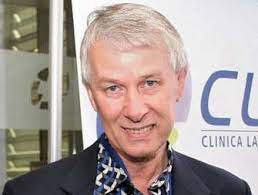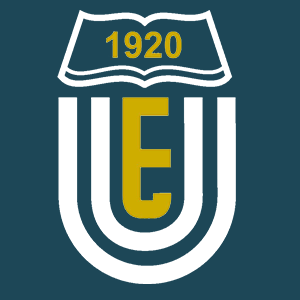Семінар Нобелівського лауреата з біології і медицини Річарда Робертса (Prof. Richard J. Roberts)
Травень 21, 2023

Запрошуємо здобувачів вищої освіти кафедри хімічної інженерії та екології, що навчаються за спеціальністю Хімічні технології та інженерії і не тільки, скористатися можливістю спілкування і прослухати лекції нобелівського лауреата.
Наступного тижня, 23 травня о 16-00, відбудеться семінар Нобелівського лауреата з хімії Річарда Робертса (Prof. Richard J. Roberts).
Проф. Річард Робертс, Британський біохімік і молекулярний біолог, лауреат Нобелівської премії з біології і медицини 1993 року за відкриття переривчастої структури гена, інтронів еукаріотичної ДНК і механізму сплайсингу. Головний науковий співробітник New England Biolabs, Іпсвіч, штат Массачусетс
Тема доповіді The Path to the Nobel Prize. У цій доповіді проф. Робертс коротко розповість про те, як він зацікавився наукою і як ледь не став професійним гравцем у більярд. Після ранніх захоплень математикою та думок про те, щоб стати професійним детективом, а згодом - здобути ступінь доктора філософії в галузі хімії, він, врешті, захопився біологією. Він розкаже про дослідження, які привели до відкриття сплайсингу РНК та модифікації ДНК, про становлення науки, яка зараз називається біоінформатикою.
Zoom link:
Join Zoom Meeting
https://us02web.zoom.us/j/4590042894?pwd=dEZzSjlMbEdkQnhNODZYYjJoekVPUT09
Meeting ID: 459 004 2894
Passcode: Ch24022022
Lecture abstract:
In this talk I will briefly describe how I became interested in science and how I almost became a professional billiards player. Following my early interests in mathematics and some thoughts about becoming a professional detective, and later my pursuit of a Ph.D. in chemistry I became fascinated with biology and read a book, "The Thread of Life" by John Kendrew that led to my becoming a molecular biologist. I will describe the research that led to the discovery of RNA splicing, which turned out to be a temporary diversion from my real interests in DNA restriction and modification and bioinformatics. With a keen interest in sequencing DNA, I became heavily involved in using computers and was a pioneer in what is now called bioinformatics. In the RM field many discoveries have been made including, most recently, some exciting findings on bacterial methylomes.
My career has spanned traditional academic research to more commercially inspired ventures. Since I now work at New England Biolabs, a for-profit company, I will describe its origins, its philosophy towards business and life, and how commercial success can fund innovative research. One theme running through my career has been a lack of respect for dogma and a keen sense of questioning everything that people tell me they already know. I will also highlight the importance of luck in shaping a career.
